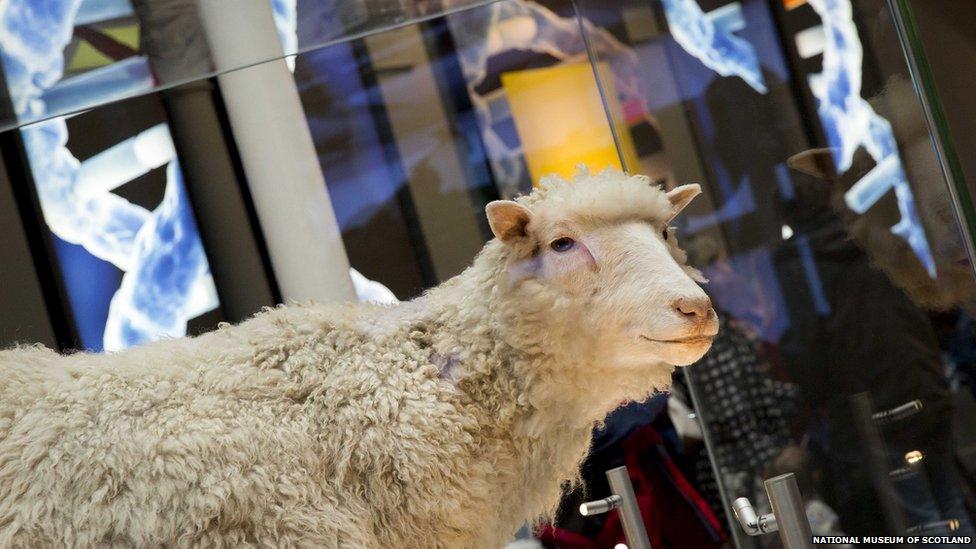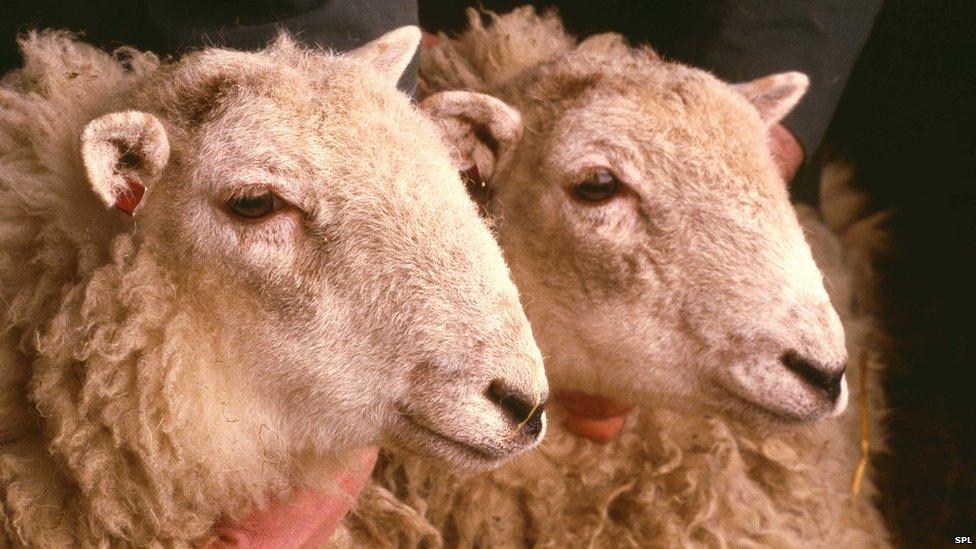Dolly the sheep health fears 'unfounded'
- Published

Dolly the Sheep on display at the National Museum of Scotland
Concerns that Dolly the cloned sheep suffered from early-onset arthritis were unfounded, a study suggests.
In fact, wear-and-tear in her joints was similar to that of other sheep of her age, regardless of how they were conceived, say researchers.
Dolly, the first mammal cloned from an adult cell, made countless headlines during her lifetime.
She came under close scrutiny, due to fears that cloned animals might develop health problems or age prematurely.
Researchers at the University of Nottingham, have re-examined her skeleton.
"We felt we needed to set the record straight - how bad was Dolly?'' said Prof Kevin Sinclair.
"It was very similar to what we saw in our own animals and other naturally conceived sheep.''
Hall of fame
It took 277 attempts to clone Dolly, and for a while she was arguably the world's most famous sheep.
She made countless headlines over the years, from her birth in July 1996 to her death in February 2003.

Megan and Morag
Her health was monitored closely, including osteoarthritis of her left knee at the age of five years.
However, a study last year of cloned ewes Debbie, Denise, Dianna and Daisy, who were derived from the cell line that gave rise to Dolly - found evidence of only mild or, in one case, moderate osteoarthritis.
The ewes were older than Dolly, at eight years, prompting researchers to re-examine Dolly's case.
Since none of Dolly's X-rays survived, the researchers X-rayed her skeleton.
They also X-rayed the skeletons of her naturally conceived daughter, Bonnie, and Megan and Morag (the first two animals to be cloned from differentiated cells).
These findings were compared with X-rays of healthy, naturally-conceived sheep.
It turns out that the findings in Dolly were not unexpected, given her age.
Sheep rarely live beyond the age of nine or ten, when kept as pets or in the wild.
"We found that the prevalence and distribution of radiographic-osteoarthritis was similar to that observed in naturally conceived sheep, and our healthy aged cloned sheep," said Prof Sandra Corr.
"As a result we conclude that the original concerns that cloning had caused early-onset osteoarthritis in Dolly were unfounded."
Follow Helen on Twitter, external.